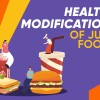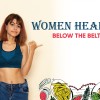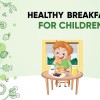
AGE TICKING EVERY YEAR, AND ARE YOU WORRIED ABOUT YOUR BONE HEALTH CARE?
Bones are the pillars of the human body. They provide our body the structure it needs, they build up the strength, anchor the muscles and joints and most, importantly store calcium. Developing osteoporosis as you age is a ‘remarkable’ condition that signals your body that you are ageing. The bones become weak and brittle. This is because your bones didn’t have enough bone mass till the time you aged up, eventually causing the bones to get weaker. So you see it's a vicious cycle between your bone health and healthy ageing eventually.
Although aging is one universal and unavoidable factor that brings a risk of osteoporosis many avoidable risk factors such as sedentary lifestyle, emotional stress, inappropriate diet may contribute to it.
Have a look at the factors that can affect your bone health and what you can probably do about them:
Diet
The diet rich in calcium will help a person to have healthy bones. This is because our bones are made of calcium. Inadequate calcium in diet leads to decreased bone mass and more risk of fractures. Calcium intake is recommended to be 800 mg/day, by the inclusion of milk and milk products, green leafy vegetables, ragi, sesame seeds etc.
Also focus on the levels of vitamin D as it helps to absorb calcium. Good sources of vitamin D are oily fish, fortified milk and sunlight.
Adequate protein along with calcium also helps in the formation of bone tissue.
Exercise
Research has proven that the persons who are more active have less risk of developing osteoporosis than the persons who are less active. We have seen the elderly who were more active in their adulthood have lesser knee pain and joint pain.
Weight-bearing exercises such as jogging, walking, climbing stairs etc. helps to build stronger bones. The more an elderly is on their feet, less is the risk of osteoporosis and fractures.
Substance abuse
Tobacco and alcohol consumption increases the risk of osteoporosis because they interfere with the bone’s ability to absorb calcium.
Gender
Women tend to have weaker bones than men. But this factor is not under control.
Hormones
Lower Sex hormones lead to loss of bone mass. Low testosterone in males and low estrogen in females cause weak bones. This is the reason why women in menopause lose more bone mass. Estrogen treatment in menopausal women is very beneficial.
Eating disorders
Conditions such anorexia nervosa in which a person starves himself and bulimia nervosa in which the person vomits out the eaten food leads to lower absorption of calcium and weak bones.
The final word
Osteoporosis is not something that will surely hit you when you age up. Yes, it's true that ageing has a direct impact on the bones. But a proper blend of diet, physical activity and lifestyle factors can certainly bring about a change.






